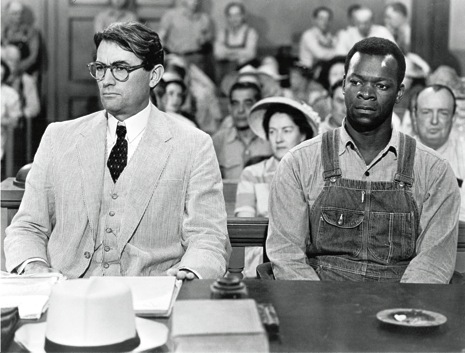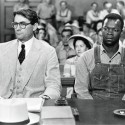By Paul Levine
Hotshot New York City lawyers frequently defend white-collar criminals, and once in a while, the tables are turned.
So it was this week when the bigwigs of a mammoth deep-carpet law firm were indicted for “cooking the books.” No, that’s not the precise charge; it’s what the lawyers themselves called it in emails!

Officially, the leaders of now-bankrupt Dewey & LeBouef, were charged with grand larceny, securities fraud, conspiracy, and falsifying business records. In a nutshell, they lied to lenders and auditors in order to obtain a stream of loans to pay themselves and their partners millions while the firm was hemorrhaging money.
“Fraud is not an acceptable accounting practice,” said New York D.A. Cyrus Vance, in what might be called an understatement.
The SEC weighed in, too. “So pervasive was the culture of financial chicanery at Dewey’s top levels that its highest ranking officials — including the defendants — had no qualms about referring among themselves in various e-mails to ‘fake income,’ ‘accounting tricks,’ ‘cooking the books,’ and deceiving what they described as a ‘clueless auditor.'”
Which brings us to the question:
Where Have You Gone Atticus Finch?
I think we yearn for the lawyer-gladiator who battles for justice against overwhelming odds. Witness Atticus Finch, standing tall before a bigoted jury and pleading for justice for a black man wrongfully accused of rape in “To Kill a Mockingbird.”
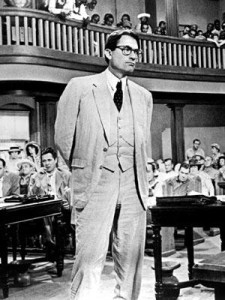
Of course, that was fiction. Harper Lee’s iconic novel was also published 54 years ago. In the intervening time, the image of lawyers in popular culture has changed, and some lawyers are unhappy about it.
When “To Speak for the Dead,” the first of my series of legal thrillers, was published in 1990, a lawyer friend chided me: “You tarnish the profession with your so-called hero.”
Well, true, Jake Lassiter is no Atticus Finch.
“They don’t call us sharks for our ability to swim.”-Jake Lassiter
Lassiter is an “ex-football player, ex-public defender, ex-a-lot-of-things” who unravels a murder mystery in the novel. As a Miami Dolphins linebacker, he was a step too slow, and he’s not that swift as a trial lawyer either. On cross-examination, he asks an expert witness one question too many and is buried in an avalanche of rhetoric. He robs a grave to get evidence, then lands in jail after taunting a witness into a fistfight.
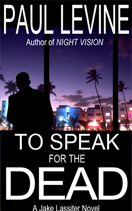
In “Mortal Sin,” Lassiter has an affair with a client’s wife and in “Flesh & Bones,” he’s sleeping with his client, a young model accused of killing her father. I haven’t checked the Ethical Rules in a while, but I suspect that both affairs are frowned upon by the elders of the Bar. In the current book, “State vs. Lassiter” our hero isn’t sleeping around; he’s charged with murder.
But I hardly invented this shift in focus from earnest, virtuous lawyers like Perry Mason and Atticus Finch to the modern shyster. In Scott Turow’s sizzling “Presumed Innocent,” prosecutor Rusty Sabich is obsessed with his mistress, not the law, while his lawyer Sandy Stern uses “subterranean pressures” on a judge instead of evidence to win his case. The same year “Presumed Innocent” was published (1987), Tom Wolfe entertained us with “Bonfire of the Vanities,” in which a D.A. builds his career with press conferences instead of jury trials. Four years later, readers had no trouble buying the premise that a successful law firm was a front for the mob in John Grisham’s spectacularly successful “The Firm.”
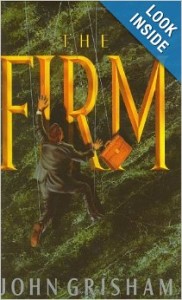
Fiction mirrors reality, so these modern portrayals are hardly surprising. The irony is that many lawyers today picture themselves as Gregory Pecks fighting heroic courtroom battles, even as they churn out endless paperwork in mind-numbing construction litigation or put jurors to sleep with year-long antitrust trials involving the dogfood industry. But dare to criticize the profession, and you’ll incur their lawyerly wrath, wimpy as it may be. (I practiced law for 17 years in both trial and appellate courts, so I feel entitled to take some liberties with my former brethren).
In a sense, it’s not these more modern lawyers who break the norm. It’s Atticus Finch who is the outlier. You want proof? Incompetent lawyers and sleazy judges are hardly new to readers. Works as diverse as Lewis Carroll’s “Alice in Wonderland,” Franz Kafka’s “The Trial” and John Barth’s “The Floating Opera” portray justice perverted. In the 1982 film, “The Verdict,” (script by David Mamet, adapted from Barry Reed’s book), Paul Newman plays a bedraggled lawyer reduced to scavenging for clients at funerals.
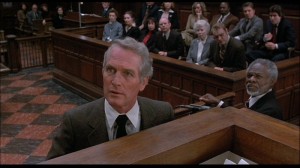
He is the classic loner pitted against a corrupt judge and a shady defense lawyer, the minions of an evil establishment. When Newman is offered a handsome settlement to drop his malpractice case for a comatose young woman, he can no more accept the money than Gary Cooper can leave town before High Noon:
“This girl’s screaming out for someone to stand up. And it’s me, Mick. It’s me. And I can win it. I can win this case.”
You Can’t Find Atticus Finch in the Bronx
There aren’t many stand-up guys in the “vast and bilious gloom” of the Bronx County Courthouse, the setting for “Bonfire of the Vanities.” Wolfe paints a portrait of Sherman McCoy, a vain but innocent man who falls “into the maw of the criminal justice system.” The Bronx courthouse is a hellish place where smalltime lawyers hustle for clients, and fierce old Judge Kovitsky spits on prisoners who sass him. Then there’s prosecutor Abe Weiss, who schedules McCoy’s arrest on the best news day of the week, hoping to garner headlines after reporters stopped covering his drug indictments as too routine.
In modern courtroom fiction, cynicism is the order of the day. In “To Speak for the Dead,” retired medical examiner Doc Charlie Riggs asks Jake Lassiter to rob a grave to find evidence At first, Lassiter refuses:
“I try not to break more than two or three of the canons each week.”
Charlie Riggs downed his drink in one gulp, gave me his teacher-to-student look, and said, “Just a little private investigation to answer some questions, settle your conscience. Maybe your young lady friend will appreciate you searching for the truth, kind of set you apart from most members of your profession.”
He knew how to push all the right buttons. “C’mon, Jake. To hell with your canons.”
“Come to think of it, I said, “they’re not mine.”
